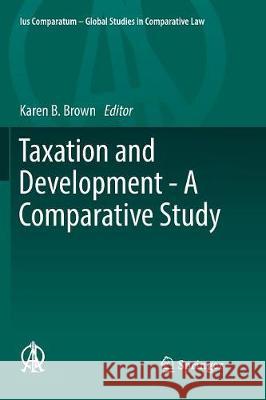Taxation and Development - A Comparative Study » książka
topmenu
Taxation and Development - A Comparative Study
ISBN-13: 9783319825120 / Angielski / Miękka / 2018 / 377 str.
Kategorie:
Kategorie BISAC:
Wydawca:
Springer
Seria wydawnicza:
Język:
Angielski
ISBN-13:
9783319825120
Rok wydania:
2018
Wydanie:
Softcover Repri
Ilość stron:
377
Waga:
0.55 kg
Wymiary:
23.39 x 15.6 x 2.06
Oprawa:
Miękka
Wolumenów:
01
Dodatkowe informacje:
Wydanie ilustrowane











